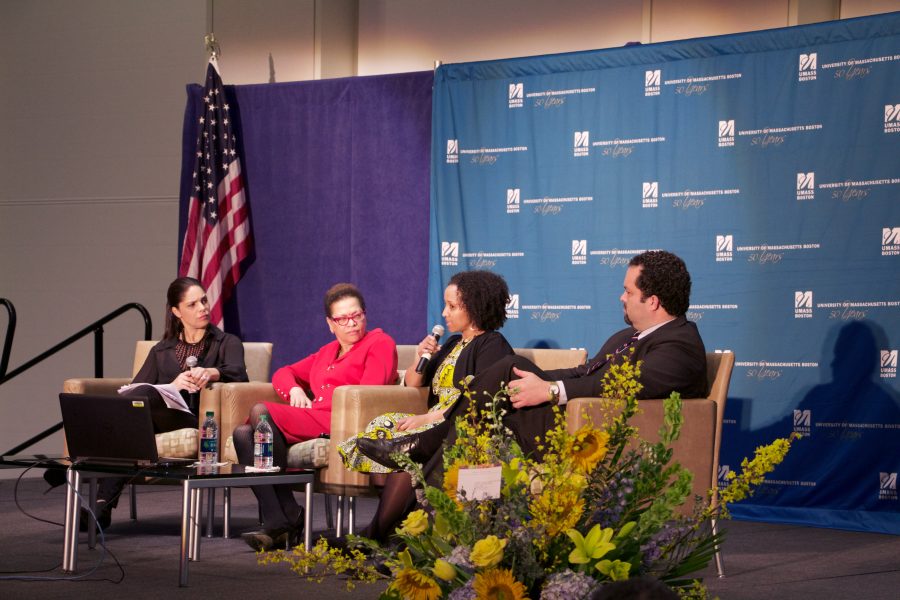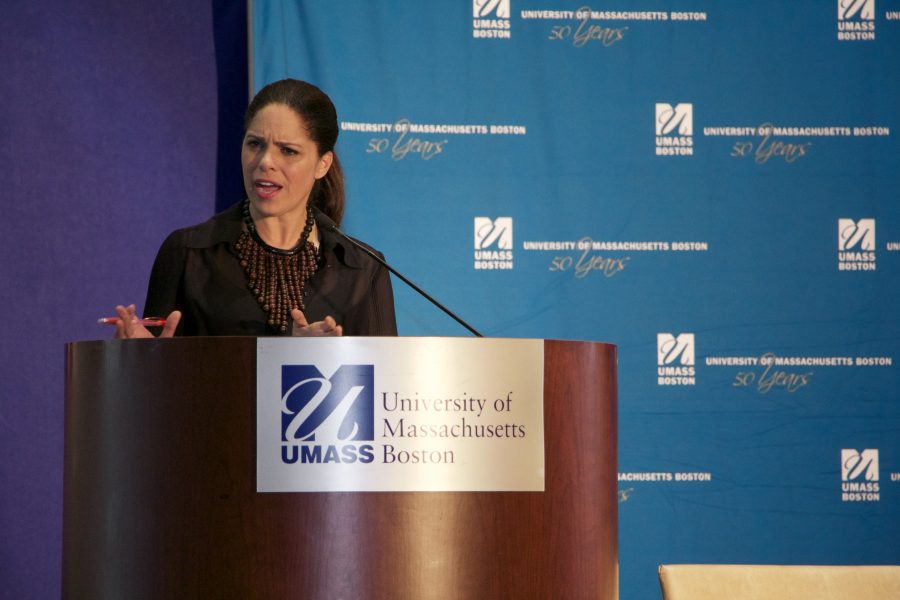On Feb. 4, CNN journalist Soledad O’Brien came to the University of Massachusetts Boston as part of her “Black in America 2015” tour.
The event, which was organized by UMass Boston’s independent student newspaper, took place in the Campus Center Ballroom. At least 400 students and staff came to hear O’Brien as well as three other influential panel guests: Julianna Malveaux, an economist, political commentator, and author; Benjamin Jealous, former president and CEO of the NAACP and currently the chairman of Southern Elections Fund; and our very own UMass Boston Africana Studies Assistant Professor Aminah Pilgrim.
O’Brien also Skyped in rapper and hip-hop producer Warren G. to be a part of the discussion on Black in America. “We need to have a complicated and nuanced conversation about race. They’re messy, they’re ugly, but they’re also very helpful. I like to talk to college students because they have no fear in the questions they want to ask.” O’Brien said this at a small press conference that she had with the Mass Media’s staff as well as outside reporters.
Pilgrim mentioned at this press conference that Boston is interesting right now because of the immigrant population, the majority of which is people of color. She talks about how these immigrants come to America seeking the American dream, but then are faced with the dilemma of blackness. In O’Brien’s documentary, she talks about the dilemmas of blackness and the connection to police brutality.
During the actual event of Black in America O’Brien showed video of previously recorded clips displaying the dilemmas that blacks face on a regular base. She showed the different treatment of white and black males. Some of the clips showed the mistreatment of black males by the police.
The panel spoke about what young black people could do to stand up for themselves without getting gunned down, as well as discussing why being gunned down is such a conversation — such a reality — in the black community.
“I think the only way things is going to change is when young people offer the leadership that they done in Black Lives Matter movement, I’m so proud of young people and what they done [sic]” Malveaux said, showing her appreciation of the young people standing up and standing against what is happening to their peers.
Soledad O'Brien






















































